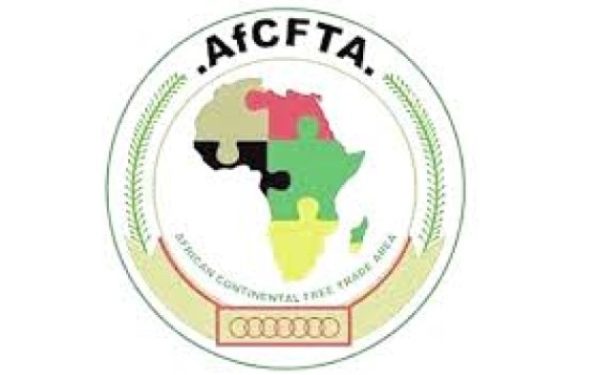Secretary-General for the African Continental Free Trade Area (AfCFTA), Wamkele Mene, has disclosed that Africa’s recovery from COVID-19 will be the slowest among world regions due to limitations, fiscal constraints, monetary policies, insufficient support and the slow vaccine rollout.
The pandemic has caused significant disruption, hardship and nearly every aspect of people’s lives have been affected in almost two years since its onset. The effect of the outbreak continues to weigh heavily on national economies. Moreover, the African continent is expected to transition from the COVID-19 induced recession of 2020. The expected growth rates of 3.4 and 4.5% in 2021 and 2022, respectively.
Speaking at the 2021 Kusi Ideas festival organised by the Nation Media Group (NMG) in collaboration with the Ghana Tourism Authority, under the theme “How Africa transforms after the virus” Mr. Mene said, “There is a major need for African countries to step up and accelerate efforts towards transformation of our economies, diversified export markets, inclusive and sustained patterns of economic growth”.
“It is pertinent at the outset to recall that the different times in the different phases of the pandemic, there were significant disruptions to supply chains and better machines, as well as the imposition by others on Africa, trade restrictions and export bans, particularly on materials that are required to fight the pandemic,” he said.
In order to address these challenges, the AfCFTA Secretariat in collaboration with the MasterCard Foundation is developing a private sector strategy, focusing on four initial priority sectors of value chains agro processing, automotive sector, pharmaceuticals, transport and logistics, which are based on the potential for import substitution and existing production capabilities in Africa.
“These value chains have the potential to contribute over $11 billion annually in production and over $5 billion annually in intra-African trade, more than double the current contribution of these value chains to intra-African trade today. This increase in production and trade has the potential to create over 700,000 jobs. 55% of which would be for women and young people. We believe that this private sector strategy will enable our businesses to make sound decisions where to invest in developing the AfCFTA”, he said.
Furthermore, Mr. Mene underscored the importance for Africa to produce its own vaccine to ensure citizens are fully protected from the virus.
“Many developed countries procured five times more vaccines than they require. They are taking about a third booster for themselves. And so, the hoarding of these vaccines by developed countries points to the urgency of the task at hand and that is for Africa to be able to manufacture vaccines not only for this pandemic, but also for future pandemics, which we know will come at some point in time”.
For his part, Dr Wilfred Kiboro, Chairman, NMG, said the festival was a pan-African initiative to provide a platform to explore the place of Africa in the world today and create a body of ideas that looked into the future of the continent with the objective of understanding to work together to manage the risk of its transformation and take advantage of the opportunities on the continent.
“We have had the dream of connecting the East to the West and we are going to see how we can have a convergence of ideas. The festival aims to create advantage and collaboration of brilliant African minds to create the opportunity for them to be heard on a continental level and globally,” he said
Dr Kiboro said it was sad that six decades after most African countries fought for and gained independence, Africa continued to be treated contemptuously by the whole of the world.
“We need to put our minds together to see how Africa can succeed on the global stage and to play its role. It is a shame that as a continent we continue to ignore, procrastinate and fail to implement good ideas. We continue to shoot ourselves at the foot, set up long term barriers in and between our countries that impede domestic, regional and intra Africa trade, leaving the continent in perpetual poverty.”
The Kusi Ideas festival seeks to build a “Pan African ideas transaction market” to capitalize on the opportunities and innovations available to Africa to help her win in the 21st Century.







